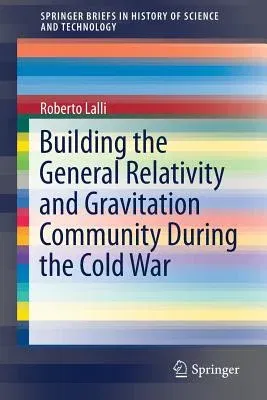Roberto Lalli
(Author)Building the General Relativity and Gravitation Community During the Cold War (2017)Paperback - 2017, 4 September 2017

Qty
1
Turbo
Ships in 2 - 3 days
In Stock
Free Delivery
Cash on Delivery
15 Days
Free Returns
Secure Checkout
Part of Series
Springerbriefs in History of Science and Technology
Print Length
168 pages
Language
English
Publisher
Springer
Date Published
4 Sep 2017
ISBN-10
3319546538
ISBN-13
9783319546537
Description
Product Details
Author:
Book Edition:
2017
Book Format:
Paperback
Country of Origin:
NL
Date Published:
4 September 2017
Dimensions:
23.39 x
15.6 x
0.99 cm
ISBN-10:
3319546538
ISBN-13:
9783319546537
Language:
English
Location:
Cham
Pages:
168
Publisher:
Weight:
267.62 gm

